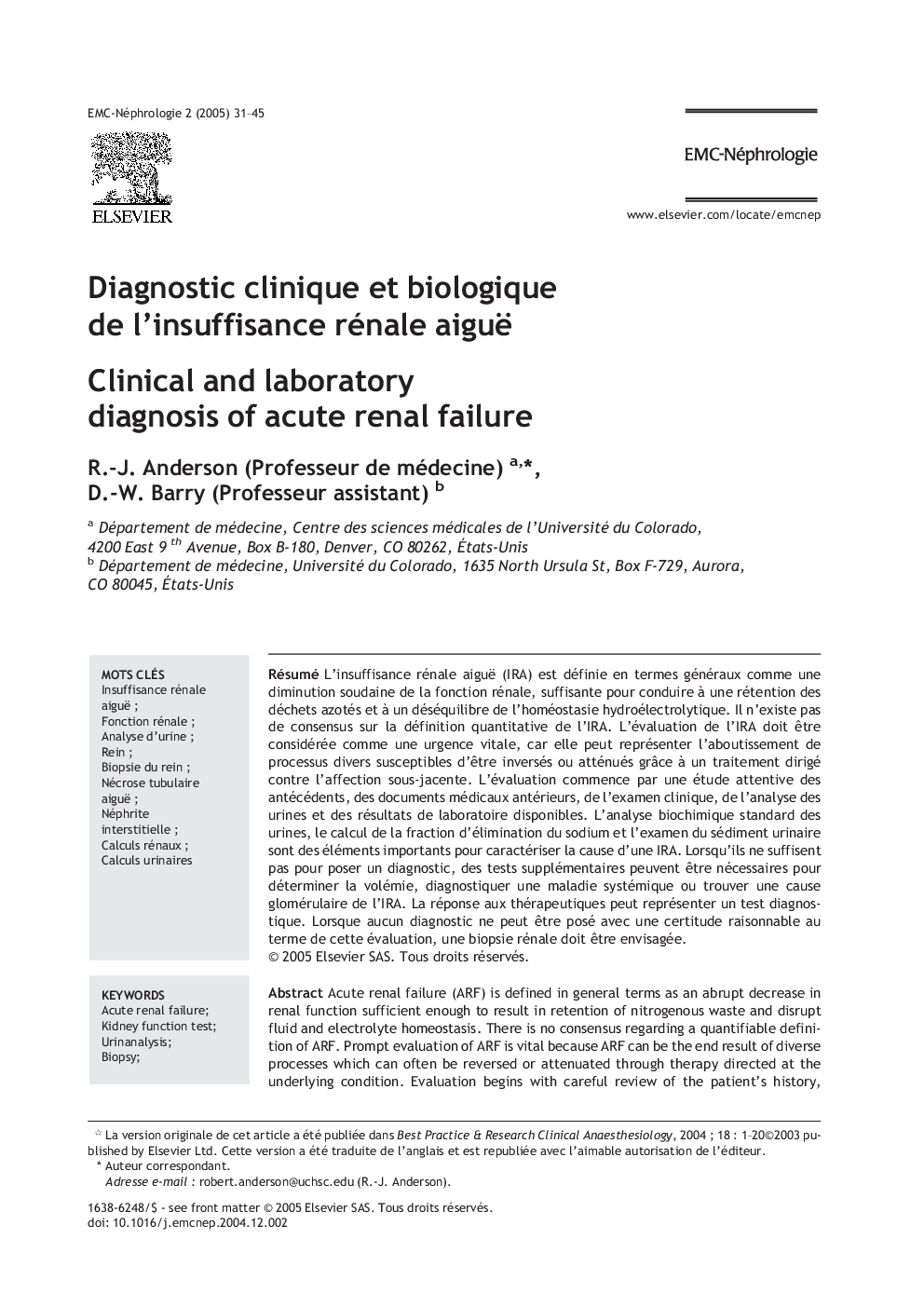| Article ID | Journal | Published Year | Pages | File Type |
|---|---|---|---|---|
| 9307890 | EMC - Néphrologie | 2005 | 15 Pages |
Abstract
Acute renal failure (ARF) is defined in general terms as an abrupt decrease in renal function sufficient enough to result in retention of nitrogenous waste and disrupt fluid and electrolyte homeostasis. There is no consensus regarding a quantifiable definition of ARF. Prompt evaluation of ARF is vital because ARF can be the end result of diverse processes which can often be reversed or attenuated through therapy directed at the underlying condition. Evaluation begins with careful review of the patient's history, previous medical records, physical examination, urinanalysis, and available laboratory data. Routine urine chemical indices, calculation of the fractional excretion of sodium, and examination of the urine sediment are valuable in characterizing the cause of ARF. When this evaluation fails to yield a diagnosis, further testing may be required to evaluate intravascular volume status or diagnose a systemic disorder or glomerular cause of ARF. Response to therapeutic trials may provide a diagnosis. When a diagnosis cannot be made with reasonable certainty through this evaluation renal biopsy should be considered.
Keywords
Related Topics
Health Sciences
Medicine and Dentistry
Nephrology
Authors
R.-J. (Professeur de médecine), D.-W. (Professeur assistant),
